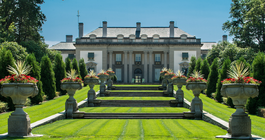
March 23, 2016
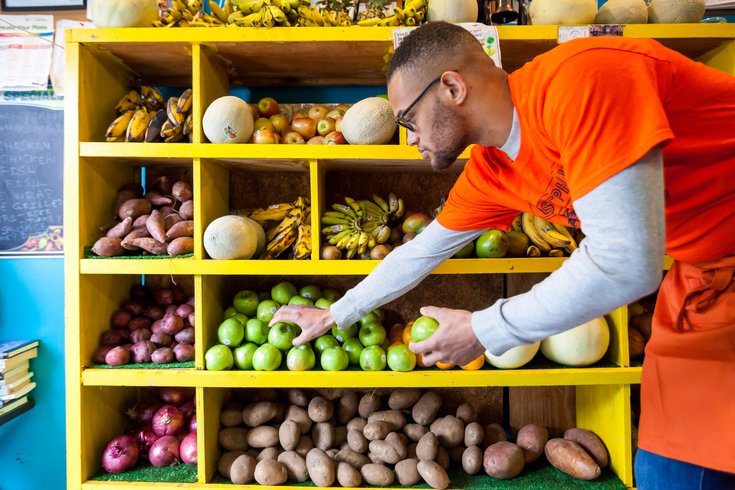 Thom Carroll/PhillyVoice
Thom Carroll/PhillyVoice
Devante Gray, co-owner of West Phillie Produce selects fruit to be used in a freshly-made juice.
Situated near the corner of 62nd Street within immediate eye shot of the Market-Frankford El, West Phillie Produce is a small grocery store with concrete floors. A pair of small refrigerated units positioned on each side of the store’s interior are bursting with fresh fruits and veggies -- pineapples, kale, romaine lettuce. The store’s founder, Arnett Woodall is holding court upstairs on the building’s second floor which doubles as a community meeting space.
“It’s all about cooperative Black economics. It’s all about creating a model that will employ our youth and economically empower our community,” Woodall says, excitedly laying out the powerful vision behind his seemingly modest grocery store.
“You start small, employing the young people in your neighborhood to help them learn. You use your for-profit businesses to support your non-profit organizations and initiatives. It’s a model that can change our communities! What I’m doing here is social.”
West Phillie Produce CEO, Arnett Woodall, left, and co-owner, Devante Gray, stand in their adjacent garden where they grow many vegetables and offer the community a chance to participate in growing through a co-op program.
Upon leaving college in the early 80’s, Woodall took a position working with at-risk youth on the campuses of Sleighton Farms school in Glenn Mills, coordinating their farming program. For years, Woodall worked with young people, listening to their struggles with the challenges of growing up poor in the city of Philadelphia while teaching them life skills and urban agriculture. When Sleighton Farms was closed in 2001 Woodall took his life and work in another direction, forming a landscaping business and contemplating ways in which he could go back to his neighborhood and make a contribution.
It wasn’t until a few years later that Woodall had the idea to form what would become West Phillie Produce.
Every day when coming back from landscaping gigs, Woodall would notice open air drug sales taking place in a vacant lot in his neighborhood. Eventually, Woodall would spend over a quarter million dollars of his own money to turn the former vacant lot into the space where West Phillie Produce now lives.
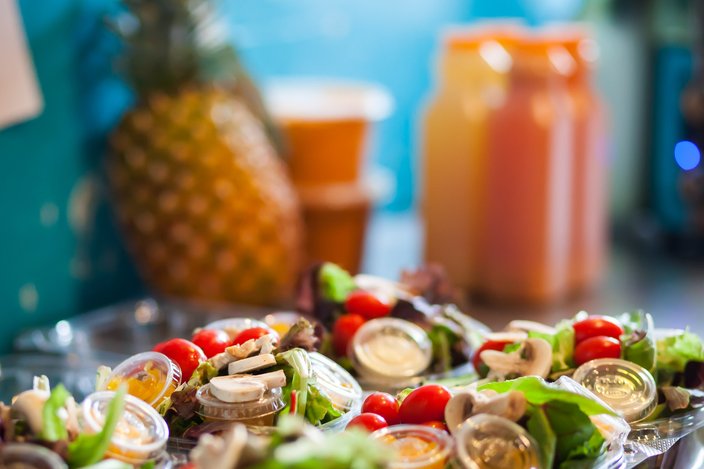
Determined to make an impact, Woodall literally put his money where his mouth is to embark on an ambitious project that would transform a neighborhood eyesore and drug spot into what we now know to be West Phillie Produce.
"Everybody that helped build this store was a person of color from the community. I paired the youth with carpenters, plumbers etc. so they could learn the skills while building the store.”
Arnett Woodall prepares a fresh juice from a combination of apples, pineapples and bananas.
In this sense, West Phillie Produce operates as a hybrid, as the grocery store is linked to a non-profit arm, A & W Community Solutions. Neighborhood youth are employed to work in the store and taught life skills as well as the ins and outs of running a community-based grocery store while adults benefit from small business and entrepreneurial workshops, healthy cooking classes and block clean ups that are coordinated by the store’s staff and community members.
When asked about his hopes for the store’s future, Woodall doesn’t speculate on the distant future and grandiose projects. Instead, he focuses on community improvement through real action and engagement.
“It’s up to us to stand up and do it. We have to build, we have to stop philosophizing about it and do it.“
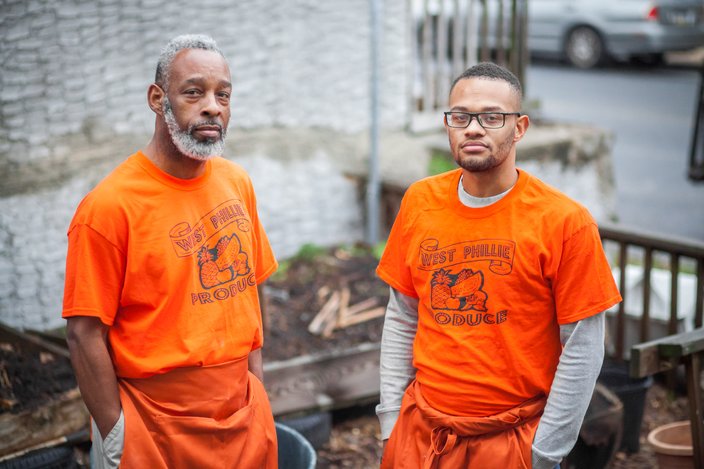 Thom Carroll/PhillyVoice
Thom Carroll/PhillyVoice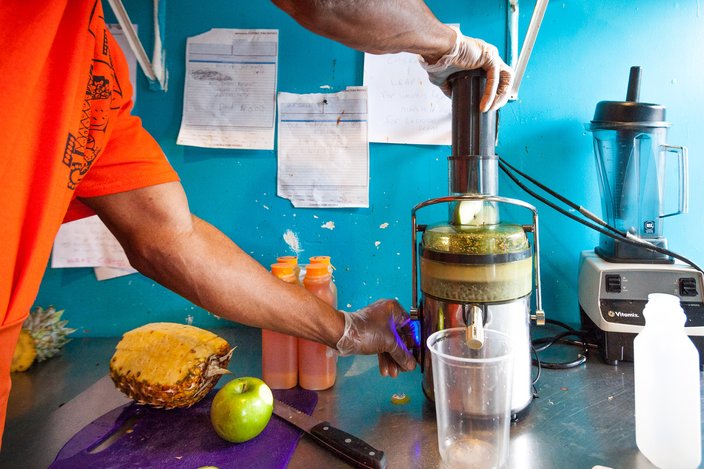 Thom Carroll/PhillyVoice
Thom Carroll/PhillyVoice